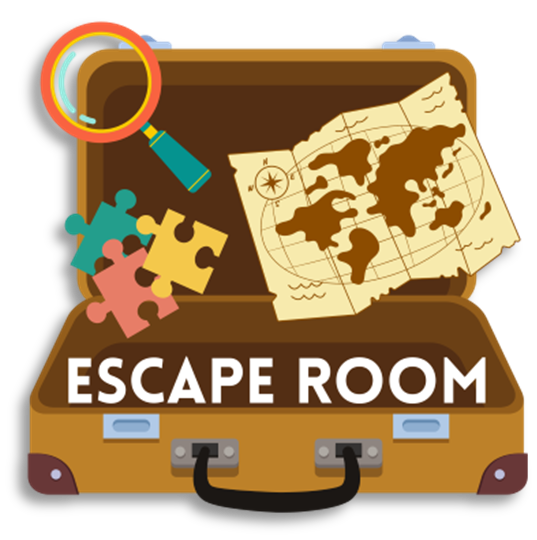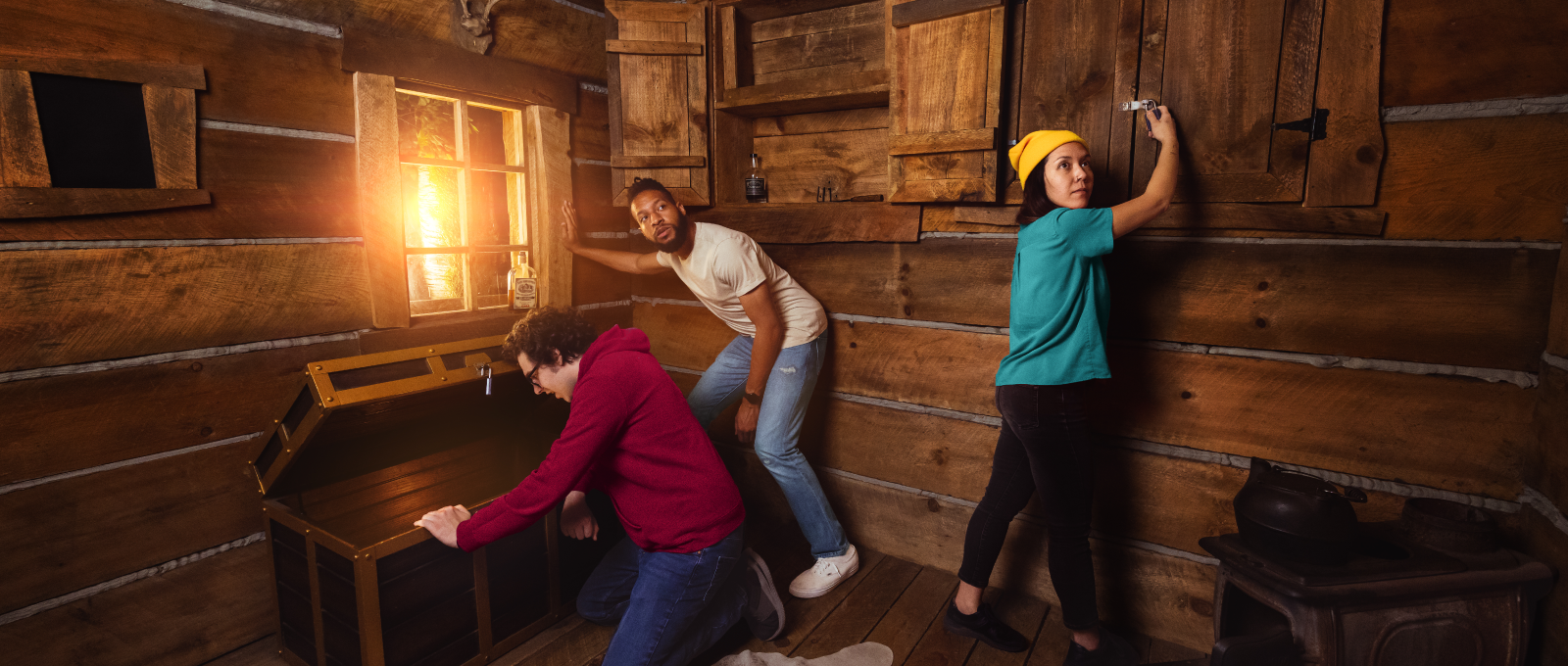Study Experience at the Escape Room in Seattle: What to Expect
Study Experience at the Escape Room in Seattle: What to Expect
Blog Article
Obstacle Your Mind With Our Intriguing Escape Room Puzzles and Clues
Beginning on an escape area adventure uses a diverse experience that mixes cognitive difficulties with immersive storytelling. Each space, meticulously crafted with special themes, draws individuals right into a globe where logic, monitoring, and physical puzzles assemble.
The Art of Puzzle Style
The art of challenge design in getaway areas is a precise and imaginative procedure that calls for a deep understanding of both cognitive and emotional involvement. Crafting an effective problem involves stabilizing intricacy with solvability, making sure that individuals remain tested yet not overwhelmed. This balance is crucial, as it promotes a feeling of achievement and promotes continued engagement.
Challenge developers should think about numerous cognitive skills, such as pattern acknowledgment, deductive reasoning, and spatial understanding. These elements must be intertwined effortlessly within the story of the retreat space, enhancing the immersive experience. Psychological involvement is equally important; challenges must stimulate curiosity, excitement, and periodic aggravation, inspiring individuals to persist and inevitably succeed.
Attention to detail is paramount. Every clue, prop, and device must be meticulously designed and tested to guarantee functionality and comprehensibility within the storyline. Designers typically iterate on their creations, incorporating comments from examination teams to fine-tune problem levels and get rid of obscurities.

Kinds Of Escape Room Difficulties
Understanding the ins and outs of problem design naturally leads to an expedition of the varied kinds of obstacles encountered in escape areas. These difficulties can be extensively categorized into physical puzzles, logic puzzles, and observational puzzles, each offering special types of interaction and cognitive stimulation.
Physical puzzles need participants to engage with their atmosphere, commonly entailing jobs such as assembling things, adjusting systems, or discovering covert compartments. These challenges involve responsive detects and spatial reasoning, encouraging synergy and hands-on analytical.
Logic puzzles, on the other hand, demand analytical thinking and pattern acknowledgment. Participants may be entrusted with translating ciphers, addressing mathematical issues, or finding links between relatively unrelated clues - escape room. These problems are created to test the gamers' deductive reasoning and intellectual expertise
Observational challenges rely upon keen attention to detail. Gamers have to scrutinize their surroundings to identify refined hints, disparities, or hidden messages. These obstacles frequently require a sharp eye and an ability to regard connections that could forget.
Techniques for Success
Accomplishing success in getaway spaces calls for a thoughtful mix of strategy and collaboration. Teamwork is critical; players have to take advantage of their collective staminas to address complex problems efficiently. Splitting jobs according to private abilities can streamline the process-- those with a flair for pattern recognition can manage aesthetic puzzles, while logical thinkers deal with sequences and riddles.
Efficient communication is an additional cornerstone of success. Sharing discoveries quickly protects against duplicated initiatives and makes certain everybody continues to be on the very same web page. Using a main location to position found items can assist track progression and stay clear go to my site of missing out on important clues.
Time monitoring is just as crucial. Allocate a particular quantity of time per problem, avoiding prolonged focus on any single difficulty. If development stalls, changing challenges or seeking assistance from colleagues can provide fresh point of views.
It's also helpful to acquaint oneself with usual retreat area motifs and problem kinds in advance. Comprehending potential problem styles, such as ciphers or lock combinations, can speed up analytical.
Finally, maintaining a favorable and composed attitude under stress can dramatically affect performance. Stress can shadow judgment, so preserving calm makes certain over at this website clear reasoning and efficient cooperation, bring about a greater probability of efficiently running away.

Benefits of Escape Rooms
Taking part in getaway areas offers a multitude of benefits that expand past plain home entertainment. These immersive experiences act as a durable platform for developing crucial reasoning and problem-solving skills. Participants are required to analyze ideas, determine patterns, and create options under time restrictions, fostering imagination and cognitive versatility.
Furthermore, escape rooms are an effective tool for enhancing team effort and communication. The joint nature of these tasks necessitates effective interaction and sychronisation among staff member. This atmosphere encourages individuals to express their ideas clearly, pay attention proactively, and work synergistically in the direction of a typical goal, consequently strengthening social abilities.
Moreover, retreat areas provide an outstanding opportunity for tension relief and psychological renewal. The engrossing nature of the challenges enables people to divert their emphasis from everyday stressors, advertising a sense of success and well-being upon solving the challenges. This can bring about enhanced mental health and wellness and boosted productivity in various other areas of life.
Last but not least, these experiences usually require imaginative reasoning and resourcefulness, which can convert into cutting-edge problem-solving capacities in professional setups. By involving in escape spaces, people can develop a varied capability that is relevant in numerous real-world situations, making them a beneficial addition to any type of personal or professional development plan.
Popular Themes and Situations
Looking into the varied world of retreat spaces discloses a myriad of prominent themes and situations that mesmerize individuals and enhance the immersive experience. Among the most precious themes are those that move players right into sensational realms or historical periods. Old Egyptian burial places, medieval castles, and pirate adventures are seasonal faves, permitting participants to fix puzzles within richly comprehensive setups that stimulate a sense of experience and discovery.
An additional prevalent theme is the secret and investigative genre, where gamers locate themselves in the role of sleuths resolving a crime or uncovering keys. These circumstances commonly feature intricate stories and a collection of interconnected hints that call for eager monitoring visit and deductive reasoning to decipher.
In addition, sci-fi and scary styles hold considerable charm, making use of the intrigue of advanced technology or the adventure of browsing haunted homes and research laboratories. These scenarios often incorporate innovative props and special impacts, improving the realism and tension.
Lastly, many escape rooms attract motivation from pop culture, creating experiences based upon cherished books, motion pictures, or television shows. This can stimulate a sense of familiarity and exhilaration, as individuals engage with circumstances that pay tribute to their favorite narratives.
Final Thought
The complex style of escape room challenges and clues offers an one-of-a-kind mix of cognitive difficulties and immersive narration. By engaging in different sorts of physical, rational, and observational problems, individuals fine-tune important reasoning and teamwork abilities. Utilizing reliable strategies enhances the overall experience, highlighting the complex benefits of retreat rooms. Popular circumstances and themes additionally enrich the experience, making getaway areas a instructional and compelling task for boosting psychological acuity and analytic abilities.
Each room, diligently crafted with special motifs, draws individuals into a globe where reasoning, monitoring, and physical puzzles converge.The art of challenge layout in getaway spaces is a imaginative and thorough process that needs a deep understanding of both cognitive and psychological interaction. Crafting an effective puzzle includes balancing intricacy with solvability, making sure that individuals stay tested yet not overwhelmed. The gripping nature of the difficulties allows individuals to divert their focus from daily stress factors, promoting a feeling of accomplishment and health upon resolving the puzzles.The complex style of retreat space problems and hints provides an unique mix of cognitive challenges and immersive narration.
Report this page